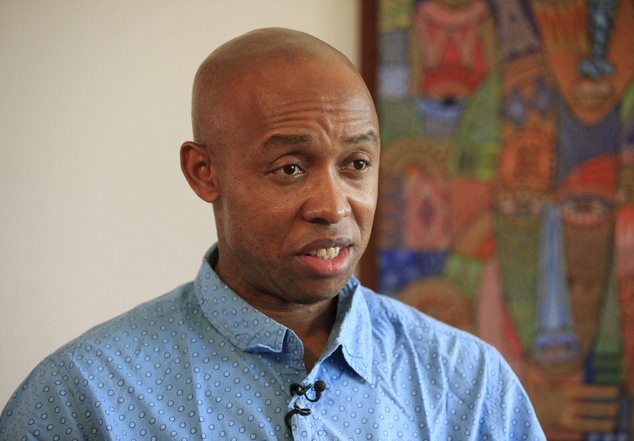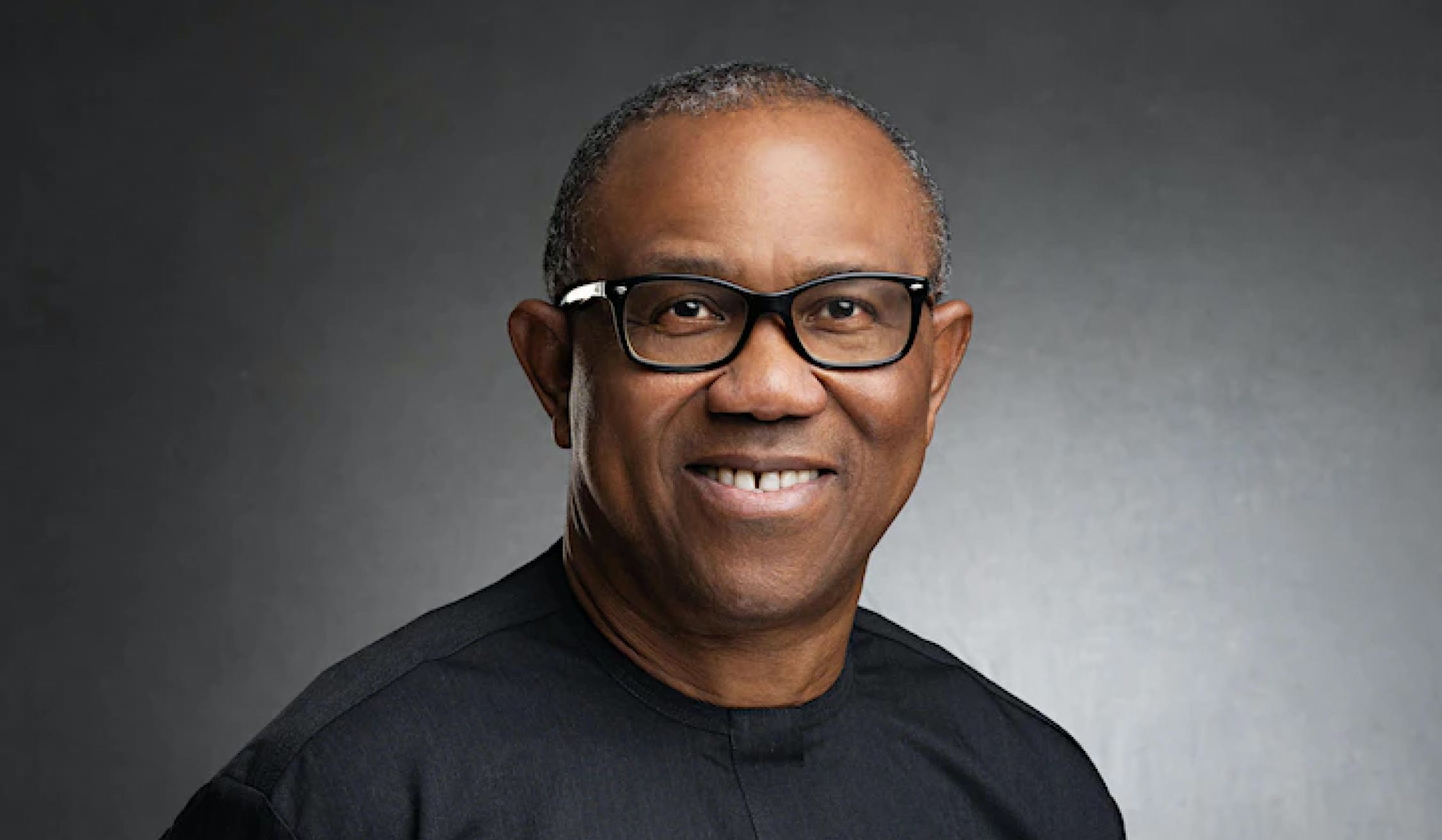Mohammed Mustapha Olaroungbe Akanbi (1971-2022), By Chidi Anselm Odinkalu
 Everyone who robs an election leaves a massive trail, but they all rely on the security services, legal and judicial systems to cover up. Rigged elections invariably end up in litigation in the courts which receive and evaluate evidence and issue judgments. In many cases, participants may even go so far as to try to bribe the opposing side's judges, witnesses or attorneys. Ultimately, the courts make judgments that do more than rule on the mechanics of the rig. These judgments are also recorded in the court of posterity on those who administered the elections, those who perpetrated the rigging, and on the loyalty of the presiding judges to their oaths of office.
Everyone who robs an election leaves a massive trail, but they all rely on the security services, legal and judicial systems to cover up. Rigged elections invariably end up in litigation in the courts which receive and evaluate evidence and issue judgments. In many cases, participants may even go so far as to try to bribe the opposing side's judges, witnesses or attorneys. Ultimately, the courts make judgments that do more than rule on the mechanics of the rig. These judgments are also recorded in the court of posterity on those who administered the elections, those who perpetrated the rigging, and on the loyalty of the presiding judges to their oaths of office.
In 2003 and again in 2007, Nigeria under President Olusegun Obasanjo held elections characterized by increasing levels of scandal and impunity. In its 2008 report, the Presidential Committee on Electoral Reform chaired by former Chief Justice, Mohammed Lawal Uwais, described Nigeria's 2007 elections as "the worst since the first elections in 1922". In the same year, the Supreme Court of Nigeria complained that politicians had reduced the elections to "a matter of life and death and therefore (are) prepared to do whatever they can to achieve their ambition".
>The rigging of the elections is therefore in itself a violation of Nigeria's fundamental rights as well as evidence of such violations. This diagnosis led the National Human Rights Commission in 2013 to commission an independent forensic review of evidence of electoral fraud in Nigeria in light of court records and judgments in electoral disputes. It was an ambitious project that required both a deep intellect and a rare integrity from those who would implement it. To execute it, the Commission sought the skills of a college of seven professors of law of distinction, one from each geopolitical sone in Nigeria, one of whom was to serve as chairman.
As Chairman of the Commission's Board of Directors, I led this vast prospecting campaign. Constantly high on the list of suggestions I have received. When I finally approached him, Mohammed wholeheartedly agreed to serve on the Committee even though he knew his job would be difficult and the outcome might meet with an uncertain reception.
The University of Ilorin had elevated him to full professorship the previous year at age 40 after 14 years of service as a lecturer and he had his hands full of teaching and administrative work. As he told me, this project was a necessity of both intellectual curiosity and civic duty. He summed up his philosophy as an academic.
Mohammed was part of the seven-person panel with uncommon distinction, erudition and fidelity to the files. He continued to count it as one of the highlights of his professional life. We subsequently collaborated on other projects, including a survey of pre-trial detention in parts of Nigeria. It has always been rigorously reliable.
I thought I knew Mohammed pretty well, but working with him on the Nigeria election rigging investigation reminded me of what made him such an amazing person.
Mohammed and I were former students of the same high school - Federal Government College Okigwe - graduating six years apart. He enjoyed a somewhat fearless childhood imposed by the wanderings of his father, Mohammed Mustapha Akanbi (whose name he bears), a judge who worked in different parts of the country before retiring in 1999 as president. of the Court of Appeal. Mohammed completed FGC Okigwe 1989 as the second former Kwara State school graduate, after Tajudeen Kazeem, the son of another former Kwara State official who completed in 1983.
>From Okigwe, Mohammed traveled to Obafemi Awolowo University (OAU) in Ife as part of a class of stellar activists including Bamidele Aturu (BF) and Ebun Olu Adegboruwa (Big Sam). Apparently shy, even reticent...

 Everyone who robs an election leaves a massive trail, but they all rely on the security services, legal and judicial systems to cover up. Rigged elections invariably end up in litigation in the courts which receive and evaluate evidence and issue judgments. In many cases, participants may even go so far as to try to bribe the opposing side's judges, witnesses or attorneys. Ultimately, the courts make judgments that do more than rule on the mechanics of the rig. These judgments are also recorded in the court of posterity on those who administered the elections, those who perpetrated the rigging, and on the loyalty of the presiding judges to their oaths of office.
Everyone who robs an election leaves a massive trail, but they all rely on the security services, legal and judicial systems to cover up. Rigged elections invariably end up in litigation in the courts which receive and evaluate evidence and issue judgments. In many cases, participants may even go so far as to try to bribe the opposing side's judges, witnesses or attorneys. Ultimately, the courts make judgments that do more than rule on the mechanics of the rig. These judgments are also recorded in the court of posterity on those who administered the elections, those who perpetrated the rigging, and on the loyalty of the presiding judges to their oaths of office.
In 2003 and again in 2007, Nigeria under President Olusegun Obasanjo held elections characterized by increasing levels of scandal and impunity. In its 2008 report, the Presidential Committee on Electoral Reform chaired by former Chief Justice, Mohammed Lawal Uwais, described Nigeria's 2007 elections as "the worst since the first elections in 1922". In the same year, the Supreme Court of Nigeria complained that politicians had reduced the elections to "a matter of life and death and therefore (are) prepared to do whatever they can to achieve their ambition".
>The rigging of the elections is therefore in itself a violation of Nigeria's fundamental rights as well as evidence of such violations. This diagnosis led the National Human Rights Commission in 2013 to commission an independent forensic review of evidence of electoral fraud in Nigeria in light of court records and judgments in electoral disputes. It was an ambitious project that required both a deep intellect and a rare integrity from those who would implement it. To execute it, the Commission sought the skills of a college of seven professors of law of distinction, one from each geopolitical sone in Nigeria, one of whom was to serve as chairman.
As Chairman of the Commission's Board of Directors, I led this vast prospecting campaign. Constantly high on the list of suggestions I have received. When I finally approached him, Mohammed wholeheartedly agreed to serve on the Committee even though he knew his job would be difficult and the outcome might meet with an uncertain reception.
The University of Ilorin had elevated him to full professorship the previous year at age 40 after 14 years of service as a lecturer and he had his hands full of teaching and administrative work. As he told me, this project was a necessity of both intellectual curiosity and civic duty. He summed up his philosophy as an academic.
Mohammed was part of the seven-person panel with uncommon distinction, erudition and fidelity to the files. He continued to count it as one of the highlights of his professional life. We subsequently collaborated on other projects, including a survey of pre-trial detention in parts of Nigeria. It has always been rigorously reliable.
I thought I knew Mohammed pretty well, but working with him on the Nigeria election rigging investigation reminded me of what made him such an amazing person.
Mohammed and I were former students of the same high school - Federal Government College Okigwe - graduating six years apart. He enjoyed a somewhat fearless childhood imposed by the wanderings of his father, Mohammed Mustapha Akanbi (whose name he bears), a judge who worked in different parts of the country before retiring in 1999 as president. of the Court of Appeal. Mohammed completed FGC Okigwe 1989 as the second former Kwara State school graduate, after Tajudeen Kazeem, the son of another former Kwara State official who completed in 1983.
>From Okigwe, Mohammed traveled to Obafemi Awolowo University (OAU) in Ife as part of a class of stellar activists including Bamidele Aturu (BF) and Ebun Olu Adegboruwa (Big Sam). Apparently shy, even reticent...
What's Your Reaction?






















